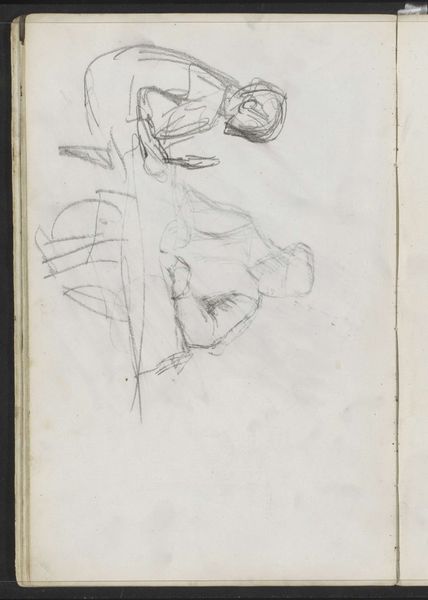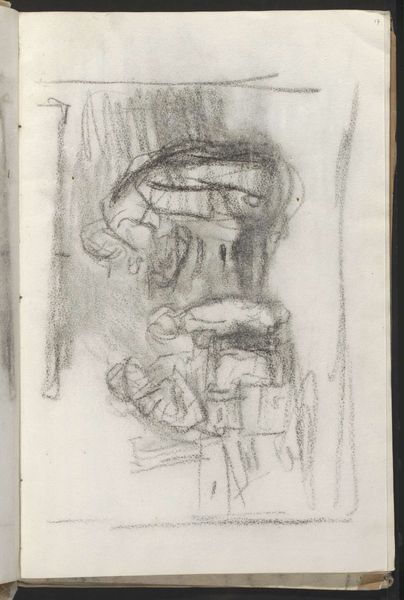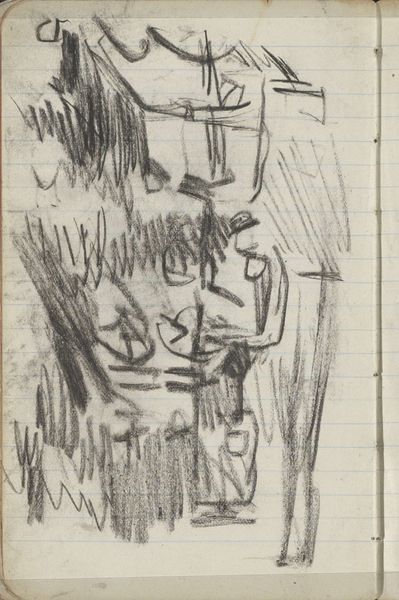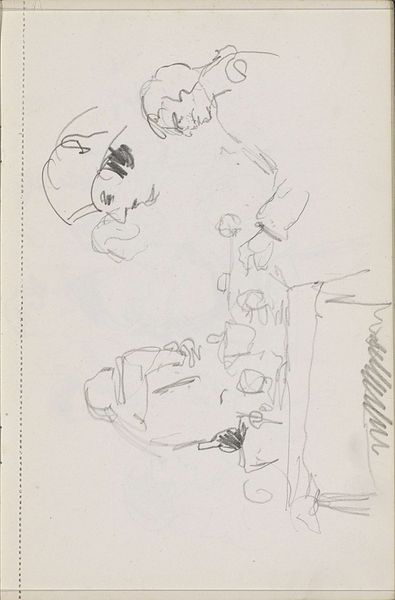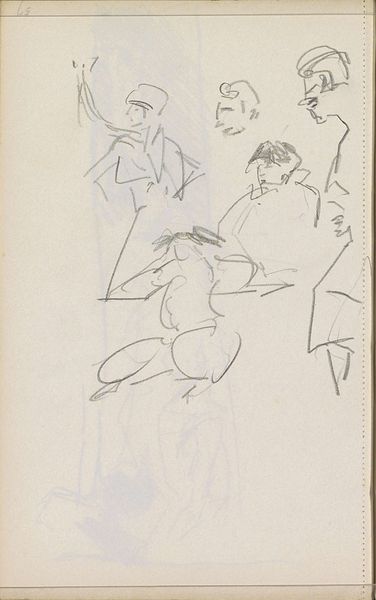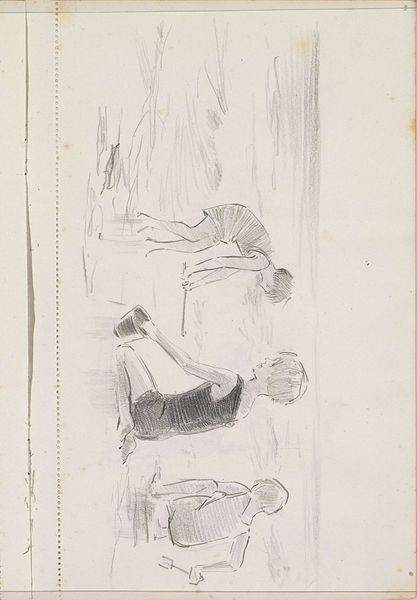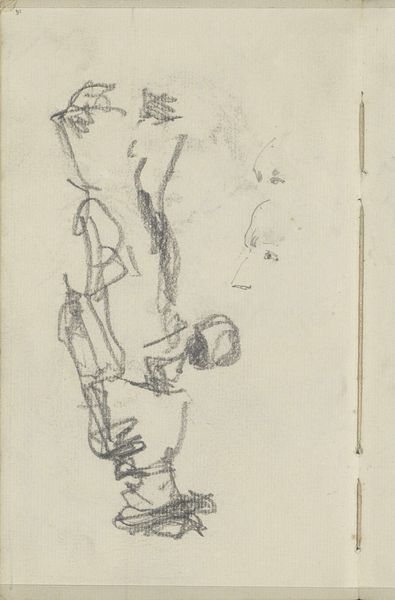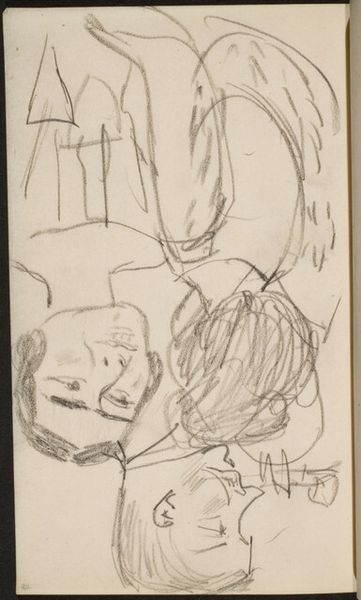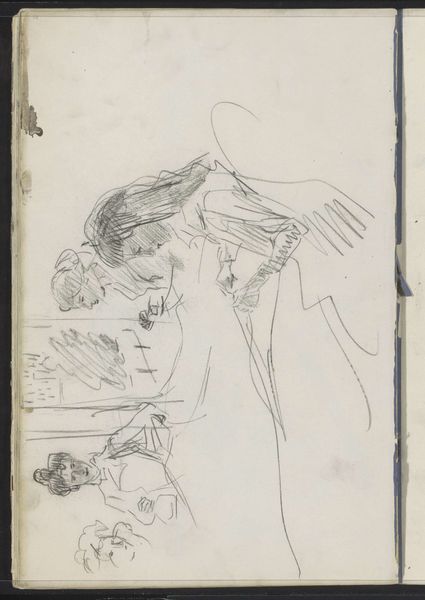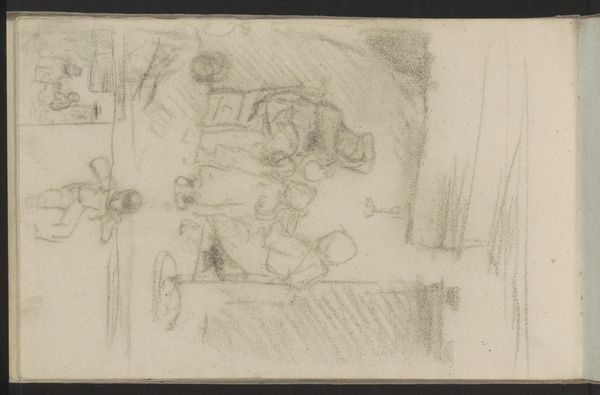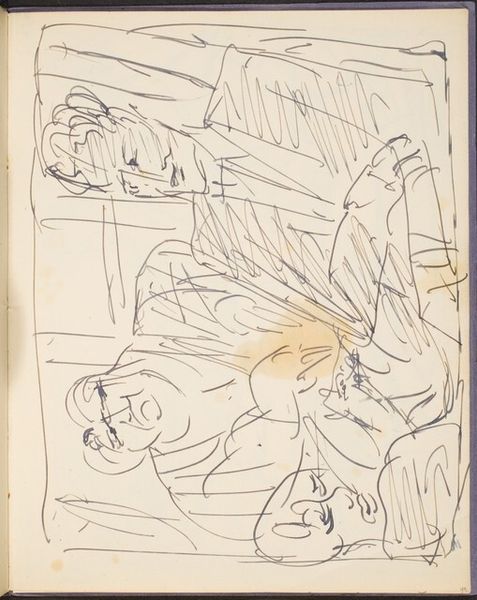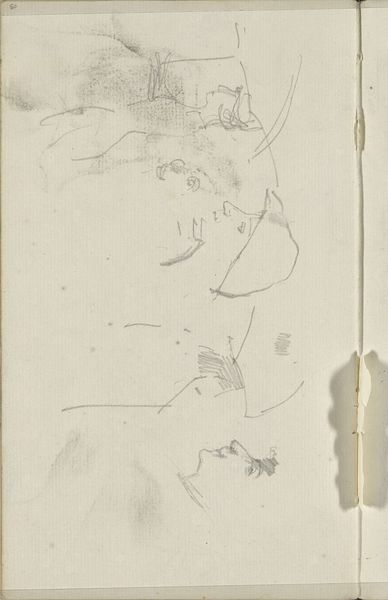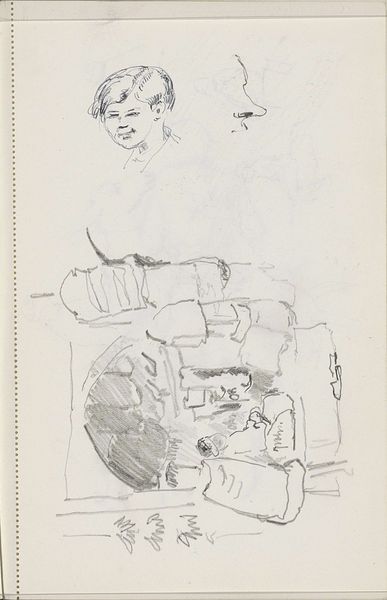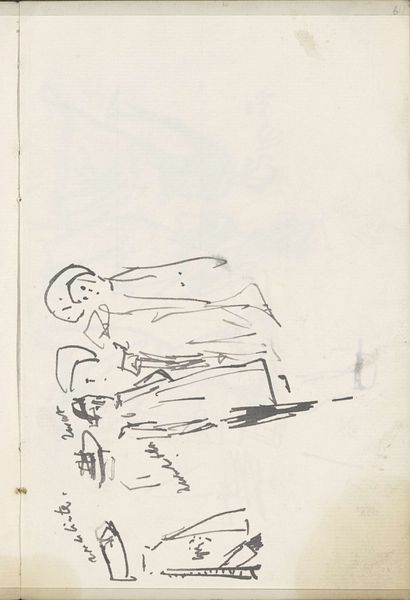
#
tree
#
light pencil work
#
pen sketch
#
sketch book
#
personal sketchbook
#
idea generation sketch
#
sketchwork
#
ink drawing experimentation
#
pen-ink sketch
#
sketchbook drawing
#
sketchbook art
Copyright: Rijks Museum: Open Domain
Editor: This sketch by Albert Neuhuys, "Jonge vrouw die zich een weg baant tussen kale bomen" roughly translates to "Young Woman Making Her Way Through Bare Trees," made sometime between 1854 and 1914, is just lines on a page, and yet there is something really captivating in the implied narrative and vulnerability of the woman in what seems to be a harsh landscape. How do you interpret this work? Curator: This work, seemingly a simple sketch, offers a powerful lens through which to examine the intersections of gender and labor during a period of significant social and economic upheaval. Neuhuys, known for his depictions of rural life, captures a young woman navigating what you rightly call a ‘harsh landscape.’ But what is ‘harsh’ about it? Editor: Well, just visually, the barren trees suggest scarcity, a difficult environment to traverse. And the woman's posture implies effort, a struggle perhaps. Curator: Exactly. And struggle for whom? The economic realities of the time meant rural women often bore a disproportionate burden of agricultural and domestic labor. The "bare trees" might symbolize not just a literal landscape but also the limited opportunities afforded to women in that context. This visual sparseness is key: is this work perhaps about the lack of social and financial safety nets for women in that period? How does her positioning, almost forced downwards by the composition itself, contribute to this idea? Editor: I hadn't considered the compositional aspect so directly, but that's a very interesting point. It makes her almost trapped. Curator: Indeed. What looks at first glance like a simple study can then become a statement on the societal pressures and expectations placed upon women in the 19th century. We need to always ask: who gets to move freely, and who is being forced to ‘make their way’ through hostile structures? Editor: I will certainly view sketches in museums in a completely new light. Curator: Hopefully it’ll encourage others to question the social landscape present in every artwork.
Comments
No comments
Be the first to comment and join the conversation on the ultimate creative platform.
